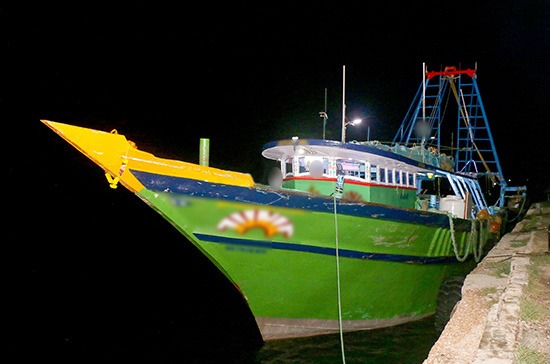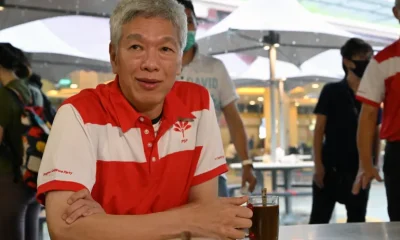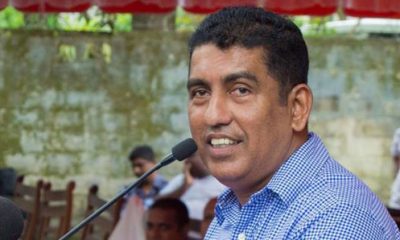Latest News
Attack on Chad military base kills at least 40 soldiers

At least 40 Chadian soldiers have been killed after their base was attacked on Sunday evening, the presidency says.
President Mahamat Déby has ordered a counter-mission to track down the culprits, according to a statement from his office.
The attack reportedly happened on an island called Barkaram, in a vast marshy region that was once covered by the waters of Lake Chad before its dramatic shrinking in recent decades.
No suspects for Sunday’s attack are named in the presidency’s statement, but the area is close to the border zones of Nigeria and Niger where Islamist militants are known to operate.
Sunday’s attack is one of the worst suffered by Chadian soldiers since 2020, when about 100 soldiers died in a raid which prompted then-President Idriss Déby to launch an operation against Islamist militants.
Local residents have told the AFP news agency they believe fighters from Boko Haram – an Islamist militant group based over the border in Nigeria – were to blame for this latest attack, and say at least 200 soldiers were stationed at the garrison at the time.
It is a blow to President Déby, who is an elite soldier by training, and the son of the former president who was killed three years ago in battle with rebels close to the Libyan border.
In its public communications the Chadian presidency has presented Déby as a hands-on leader with military nous, who visited the site of the attack early on Monday, “assessing the situation on the ground, paying his respects to the deceased soldiers, showing his compassion to the wounded, and raising the morale of his brothers-in-arms”.
The Lake Chad basin is bordered by Cameroon, Chad, Niger and Nigeria — all of which are part of a Multinational Joint Task Force that seeks too stamp out the armed groups operating in the region.
But Islamists “often regroup when troops withdraw”, and better funding and planning is needed, says the International Crisis Group.
In recent years, there have been several coups in the region, in Niger, Mali and Burkina Faso. The military in each country cited the inability to deal with the Islamist militant threat as one of the reasons for the ouster of the civilian governments.
Analyst Paul Melly writes that, surrounded by so many regional crises, Chad stands out as an island of continued stable partnership with the West – and is now deepening relations with Russia in a ploy that irritates and pressures France and the US.
Chad has also become a key conduit for arms flowing into Sudan, and is hosting large numbers of refugees from the country’s civil war in camps near its eastern border.
(BBC)
Latest News
President stresses need to strengthen the National Procurement Commission

President Anura Kumara Dissanayake emphasized the importance of implementing a procurement plan and strengthening the National Procurement Commission (NPC).
The President shared these views in a meeting held at the Presidential Secretariat this morning (28), where he engaged in an in-depth discussion with NPC officials on the current procurement laws and procedures.
Officials from the National Procurement Commission informed the President that although around 60% of all government expenditures, including capital expenses, should ideally follow a proper procurement process, shortcomings in this process are causing significant losses to the government. This, they noted, creates greater opportunities for fraud and corruption.
The discussion also covered issues related to delays, lack of transparency, and inefficiencies in the procurement process. Attention was given to minimizing shortcomings in handling unsolicited proposals and Public-Private Partnership (PPP) procurements.
President Dissanayake pointed out the need to further expand the authority of the NPC to establish more systematic procurement planning.
The meeting was attended by Secretary to the Presidential Dr. Nandika Sanath Kumanayake, NPC Chairperson Sudharma Karunaratne, and other officials from the National Procurement Commission.
Foreign News
Chaos and political drama rock Japan’s snap election

Japanese elections are normally steady and boring affairs.
This snap election was neither.
The dramatic vote follows a political funding corruption scandal, revealed last year, which implicated senior lawmakers from the ruling Liberal Democratic Party (LDP) and cabinet members, tarnishing the party’s image and angering the public.
The electorate made that anger felt in this election and sent a strong message to the LDP, punishing it at the ballot box.
According to best estimates, the LDP, which has been in power almost continuously since 1955, has lost its single party majority in the country’s powerful lower house.
LDP also lost its majority as a governing coalition. Its junior coalition partner Komeito lost several of its seats, including that of its chief, as well, meaning that even with its partner, the LDP is still unable to achieve the 233 seats it needs for a majority.
Prime Minister Shigeru Ishiba made a political gamble, and it backfired.
He and the LDP underestimated the extent of people’s anger and more crucially their willingness to act on it.
But this was the perfect storm – a corruption scandal that saw dozens of the ruling party’s lawmakers investigated for pocketing millions of dollars in proceeds from political fundraising events, while Japanese households struggle with inflation, high prices, stagnant wages and a sluggish economy.
To stay in power, the LDP will now need to form a coalition with other parties it just fought in the election, and it will do so from a position of significant weakness. That means it must enter negotiations and make concessions to survive.

It is hard to overstate how rare this is. The LDP has always enjoyed a safe and steady place in Japanese politics.
The ruling party has a strong track record of governance – and when the opposition did take over in 1993 and 2009, for three years each time, it ended badly.
Since the LDP came back to power in 2012, it managed to win one election after another almost uncontested. There has long been a resignation about the status quo, and the opposition still remains unconvincing to the public.
“I think we (the Japanese) are very conservative,” Miyuki Fujisaki, a 66-year-old voter, told the BBC a few days before the election. “It’s very hard for us to challenge and make a change. And when the ruling party changed once (and the opposition took over), nothing actually changed in the end, that’s why we tend to stay conservative,” she added.
Ms Fujisaki said that she was unsure who to vote for this time, especially with the fundraising corruption scandal hanging over the LDP. But since she has always voted for the LDP, she was going to do the same this election too.
The results of this election tell a bigger story about the state of Japanese politics: A ruling party that has dominated for decades and an opposition that has failed to unite and become a viable alternative when the public needed one.
In this election, the LDP lost their majority. But no one really won.
Japan’s ruling party took a beating at the ballot box – but not a big enough beating that it has been booted out.
Jeffrey Hall, a lecturer at Kanda University of International Studies, told the BBC that despite voters wanting to hold their politicians accountable through elections “in the minds of the voters there really is no one else” they trust to be at the helm.
In this election, the opposition’s biggest party – the Constitutional Democratic Party (CDP) – made significant gains. But observers say these results are less about voters endorsing the opposition than about voters’ ire with the LDP.
“This election appears to be about voters who are fed up with a party and politicians they see as corrupt and dirty. But it’s not one where they want to bring about a new leader,” Mr Hall said.
What that leaves Japan with is a weakened ruling party and a splintered opposition.
Japan has long been seen as a beacon of political stability – a safe haven for investors and a reliable diplomatic partner in an increasingly unstable Asia Pacific.
This political chaos in Japan is concerning not just for its public, but also its neighbours and allies.
However the LDP enters power, it will do so weakened, with its hands tied in coalition concessions.
The task of turning the economy around, creating coherent policies for wages and welfare and maintaining overall political stability will not be easy.
Harder still will be regaining the trust and respect of a public weary of politics.
[BBC]
Latest News
Navy seize Indian fishing vessel poaching in Sri Lankan waters

The Sri Lanka Navy seized an Indian fishing boat and apprehend 12 Indian fishermen while they were poaching in Sri Lankan waters, during a special operation conducted off Point Pedro, Jaffna today (27th October 2024).
The Navy continues to conduct regular patrols and operations in Sri Lankan waters to curb illegal fishing practices of foreign fishing boats, taking into account the impact of those practices have on the livelihood of local fishermen.
As an extension of these operations, the Northern Naval Command deployed its Fast Attack Craft to send away a cluster of Indian fishing boats, having spotted they were poaching in Sri Lankan waters off Point Pedro. The operation resulted in the seizure of one Indian boat and
apprehension of 12 Indian fishermen who continued to remain in Sri Lankan waters.
The seized boat together with Indian fishermen were brought to the Kankesanthurai Harbour and they will be handed over to the Mailadi Fisheries Inspector for onward legal proceedings.
Including this apprehension, the Navy has held 62 Indian fishing boats and 462 Indian fishermen in island waters thus far in 2024, and handed them over to authorities for legal action.
(Navy media)
-

 Editorial5 days ago
Editorial5 days agoProbe reports, skewed logic and emerging threats
-

 Foreign News6 days ago
Foreign News6 days agoLee Hsien Yang, youngest son of Singapore founder, claims asylum in the UK
-

 News4 days ago
News4 days agoGammanpila challenges Minister Herath over allegations against former judge
-

 Sports4 days ago
Sports4 days agoSri Lanka riding high on an impressive run
-

 Editorial4 days ago
Editorial4 days agoAcid test of leadership
-

 Sports2 days ago
Sports2 days agoPassing the torch; Sri Lanka’s next batting dynamos
-

 News4 days ago
News4 days agoIllegally assembled Johnny’s BMW bears engine & chassis numbers of car stolen in England in 2021 – Police
-

 Editorial7 days ago
Editorial7 days agoOf that damning report











